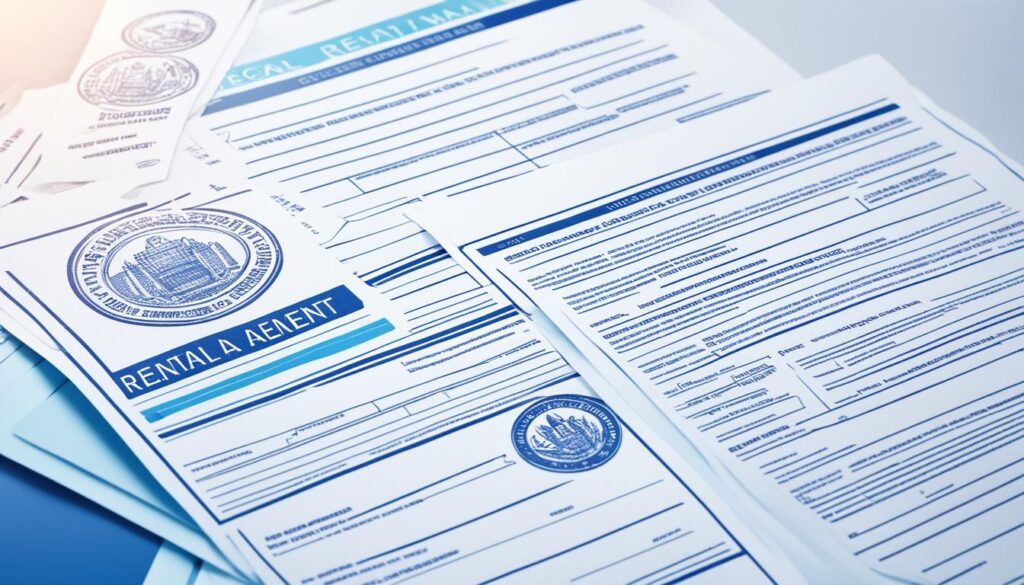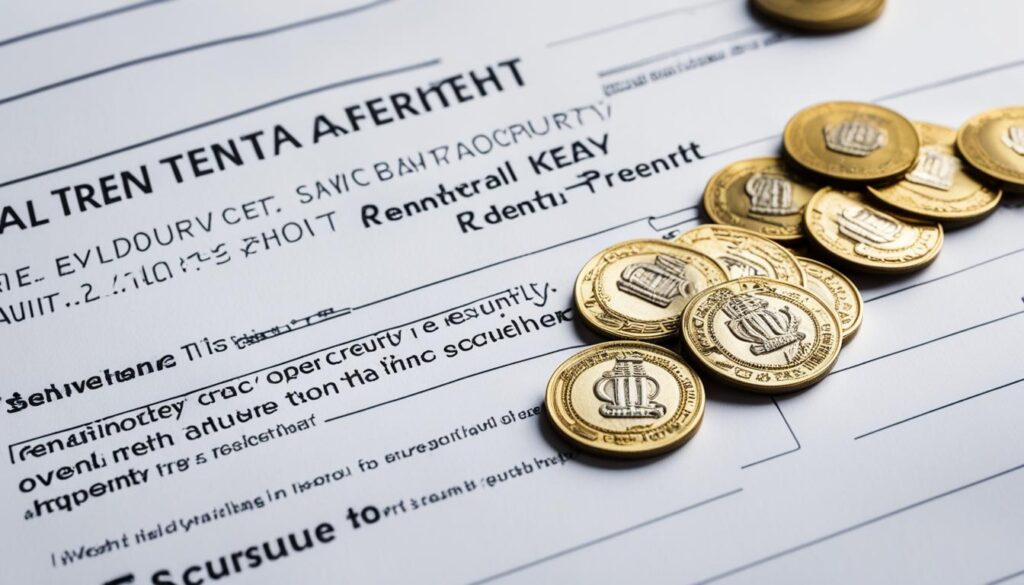Renting a property in Thailand can be a rewarding experience, but it is essential to familiarize yourself with the Renting in Thailand Rules and Thailand rental regulations. This guide aims to serve as a reliable resource for anyone looking to lease a property in this beautiful country, especially foreign nationals who may be navigating the landscape for the first time. By understanding the Renting laws in Thailand, you can avoid common pitfalls and ensure a smooth and enjoyable renting experience.
With this comprehensive guide, you will discover valuable insights related to tenant rights, landlord responsibilities, and the legal regulations governing rental agreements in Thailand. We emphasize the importance of research and communication with landlords, as well as conducting thorough inspections of potential rental properties.
To explore more detailed information on various aspects of renting in Thailand, visit this helpful source that highlights key considerations and essential steps to take before signing a rental agreement. Additionally, this guide will cover various topics from understanding rental contracts to negotiation tactics to make your experience both rewarding and hassle-free1.
Key Takeaways
- Understand the importance of written lease agreements to protect your rights as a tenant.
- Research your potential rental locations to find a balance between cost and convenience.
- Always negotiate your rent; significant savings are often possible.
- Familiarize yourself with your obligations as a tenant and those of your landlord.
- Be aware of the required security deposits and payment schedules before committing to a lease.
- Consider working with a rental agent to streamline the process and avoid common mistakes.
Contact us if you are Interested in Buying Property Abroad!
Overview of Renting in Thailand
The Thailand rental market presents a unique landscape that appeals to both locals and expatriates, offering an array of options that vary significantly in price and amenities. Major urban areas such as Bangkok, Chiang Mai, and Phuket showcase diverse rental properties catering to varied lifestyles and budgets. The current rental market landscape reflects an increasing trend among foreigners seeking housing due to ownership restrictions, making understanding property rental guidelines Thailand essential for a smooth experience.
Understanding the Rental Market Landscape
In Bangkok, popular neighborhoods like Sukhumvit and Silom boast modern condominiums, while more traditional accommodations can be found in areas like Thonburi. The average rental prices vary based on location, with central districts often commanding higher rates. Factors like proximity to public transportation, essential services, and local amenities play a crucial role in determining rental costs. For expatriates, adjusting to these local market dynamics is vital for securing suitable living arrangements.
Types of Properties Available for Rent
The rental inventory in Thailand includes a range of housing types, such as:
- Furnished apartments
- Condos
- Detached houses
- Terraced homes
Landlords typically request a security deposit of one to two months’ rent, alongside first month’s rent upon lease signing, making it crucial to understand financial commitments upfront. Leases in Thailand usually cannot exceed 30 years, including options for extension. Written agreements are essential, as leases exceeding three years must be registered for legality, highlighting important234 considerations for prospective renters.
Legal Requirements for Rental Agreements

Understanding the legal requirements for rental agreements is essential for both landlords and tenants in Thailand. The lease agreement Thailand must be documented in writing to ensure it is enforceable. This is particularly vital given the complexities of renting laws in Thailand, which are designed to protect all parties involved.
Importance of Written Lease Agreements
A written lease agreement is crucial for safeguarding both tenant and landlord interests. It typically includes the property identification, rental costs, duration of the agreement, and rules regarding property usage, maintenance, and repairs. Notably, any lease agreements exceeding three years in duration are unenforceable unless written and registered at the Land Department5. This registration process serves to formalize agreements and dispel ambiguities.
New regulations stipulate landlords can only request a one-month security deposit, which is a significant change in renting laws in Thailand that aims to prevent landlords from overly burdening tenants6. Additionally, either party is allowed to terminate the contract with a 30-day written notice, ensuring flexibility for both tenants and landlords6.
Registration of Lease Agreements Over Three Years
For leases spanning more than three years, registering the agreement with the local land office is mandatory7. This process not only solidifies the agreement but also clarifies tax implications related to the property rental. The registration incurs a fee of 1.1% of the rental value, which is a reasonable cost for the protections provided5. It is essential to remember that, regardless of the lease duration, most landlords are prohibited from adding additional charges to utility bills, which is another significant aspect of the Thailand rental regulations6.
| Aspect | Details |
|---|---|
| Duration Limit | Lease agreements can last a maximum of 30 years. |
| Security Deposit | Landlords may only request one month’s rent as a deposit. |
| Termination Notice | Both parties need to provide a 30-day written notice to terminate. |
| Registration Requirement | Lease agreements exceeding three years must be registered. |
Renting in Thailand Rules

Understanding the rules governing renting in Thailand is essential for anyone entering the real estate market. Familiarity with these regulations can help establish a clear understanding between landlords and tenants, fostering a harmonious rental relationship.
Contact us if you are Interested in Buying Property Abroad!
Duration of Rental Agreements and Renewal Options
In Thailand, lease agreements can last for a maximum of 30 years. For leases exceeding three years, it is mandatory to register with the local land office to ensure enforceability89. The lease registration fee is set at 1% of the total rental cost for the duration of the lease, while a stamp duty of 0.1% is also required on that total89. Furthermore, while a standard lease can easily renew, clarity in renewal options must be part of any written agreement to avoid disputes.
Tenant Rights and Responsibilities
Tenants in Thailand have specific rights that must be protected. This includes the right to a habitable living environment and the proper return of security deposits without unjust deductions. Knowledge of tenant rights in Thailand is crucial in ensuring that expectations are met and upheld, leading to a smoother renting experience.
Landlord Obligations and Responsibilities
Landlords have defined obligations under Thai law, including ensuring property upkeep and compliance with renting in Thailand rules. They must adhere to regulations regarding the property’s condition, as well as the timely handling of any maintenance issues that may arise during the lease term. Ultimately, understanding landlord responsibilities in Thailand can empower tenants and lead to better communication and satisfaction for both parties involved.
| Aspect | Details |
|---|---|
| Max Lease Duration | 30 Years |
| For Leases Over 3 Years | Must be registered, 1% registration fee, 0.1% stamp duty |
| Tenant Rights | Habitable environment, return of security deposits |
| Landlord Responsibilities | Property maintenance, compliance with rental laws |
Understanding Security Deposits and Rental Payments

Renting a property in Thailand involves understanding essential financial aspects, particularly security deposits and rental payments. Typically, landlords require a security deposit of one or two months’ rent along with the first month’s advance payment. Starting from May 1, 2018, the regulations state that a maximum of two months’ rent can be collected as a security deposit when signing a lease10. On violation of these rules, landlords face penalties reaching THB 100,000 or potential imprisonment for up to one year10.
Common Practices Regarding Security Deposits
When renting in Thailand, it’s critical to be aware of the common practices regarding security deposits. Landlords may request up to two months’ rent as a security deposit, reflecting the average practices throughout the country1. Moreover, these deposits ensure that landlords have some form of security against potential damages or unpaid rent, while tenants can look forward to their return following a satisfactory conclusion of the lease. As stipulated by the revised Consumer Protection Act, landlords must refund any amount collected over two months’ rent retroactively for current leases10.
Payment Schedules and Methods
Understanding the payment schedules and methods is vital for a smooth rental experience in Thailand. Tenants typically pay the first month’s rent in advance and can choose between various payment methods, such as cash or bank transfer. It is also customary for many landlords to require a 30-day written notice when a tenant intends to vacate the premises1. Rental payments in regions like Bangkok can vary greatly, ranging from 8,000 to over 100,000 Thai Baht depending on the size and location of the condo11. This adaptability in rent and deposit practices offers tenants and landlords a clearer path toward mutual agreement and satisfaction.
| Property Type | Rental Price Range (THB) | Security Deposit (Months) |
|---|---|---|
| Studio/1-bedroom Condo | 8,000 – 30,000+ | 1-2 |
| 2-bedroom Condo | 15,000 – 50,000+ | 1-2 |
| 3-bedroom Condo | 30,000 – 100,000+ | 1-2 |
Being well-informed about these financial practices regarding a security deposit in Thailand and rental payments gives tenants the leverage needed to avoid disputes, ensuring transparent and fair transactions10111.
Contact us if you are Interested in Buying Property Abroad!
Challenges and Considerations for Foreigners

Renting in Thailand presents unique challenges for foreigners, often leading to misunderstandings and missed opportunities. It is crucial to be aware of common mistakes, the benefits of working with rental agents, and practical tips for finding the ideal property.
Common Mistakes to Avoid When Renting
Many foreigners overlook essential aspects of renting in Thailand rules, leading to unfortunate experiences. Not inspecting properties thoroughly can result in underestimating maintenance issues or neighborhood conditions. Misunderstandings regarding lease terms, such as the effective duration of agreements or renewal options, may lead to disputes down the road. It is wise to clarify points about subletting, as Thai law prohibits it unless explicitly stated in the lease agreement1213.
Working with Rental Agents in Thailand
Engaging with reputable rental agents in Thailand can significantly ease the renting process. These professionals provide valuable local insights and help navigate the complexities of lease agreements. They can assist in clarifying the renting in Thailand rules, ensuring that all contractual stipulations are well understood. Their expertise can also facilitate smoother negotiations and safeguard against overwhelming paperwork, making the rental journey less daunting.
Tips for Finding Your Ideal Rental Property
Finding the right rental property requires careful consideration. Here are some tips to guide your search:
- Understand your lease options, knowing that long-term leases can extend up to 30 years with proper registration.
- Check the proximity to public transport to ensure ease of commute.
- Investigate local amenities, such as schools, markets, and recreational facilities.
- Be aware that the lease effectively terminates upon the tenant’s passing, unless a succession clause is included1213.
| Consideration | Details |
|---|---|
| Lease Duration | Commonly valid for three years if not registered; can extend to 30 years if appropriate registration is obtained. |
| Subletting Rules | Renters cannot sublet unless included in the initial lease agreement. |
| Right of Superficies | Allows registration for up to 30 years, transferable to heirs. |
Conclusion
Understanding the intricacies of Renting in Thailand Rules is vital for a successful leasing experience, especially for expatriates looking to settle in this vibrant country. The key takeaways from this guide emphasize the importance of being informed about the Thailand rental regulations, which define the rights and responsibilities of both tenants and landlords. By becoming knowledgeable about legal requirements—including the necessity of written lease agreements and the implications of security deposits—prospective renters can navigate their rental journey with confidence.
Moreover, understanding the competitive landscape of the rental market is essential. With approximately 500,000 expats in Bangkok, many living in condominiums and apartments, it’s clear that demand is high, especially for quality properties in preferred locations14. Furthermore, the regulations surrounding long-term leases grant foreigners the opportunity to secure stable housing for extended periods, allowing for a smoother transition into Thai life15.
Ultimately, whether you’re a first-time renter or a seasoned expatriate, being well-versed in the Renting in Thailand Rules will not only safeguard your interests but also promote a harmonious relationship between tenants and landlords. By adhering to best practices and being aware of the current rental trends, you can ensure a pleasant living experience while enjoying all that Thailand has to offer.
Contact us if you are Interested in Buying Property Abroad!
FAQ
What are the key renting laws in Thailand that I should know?
What rights do tenants have in Thailand?
What are the landlord’s responsibilities in Thailand?
How much should I expect to pay as a security deposit in Thailand?
What should be included in a lease agreement in Thailand?
What common challenges do foreigners face when renting in Thailand?
How can I effectively find a rental property in Thailand?
Source Links
- https://silkestate.io/top-pitfalls-to-avoid-when-renting-in-thailand/
- https://www.thailandlawonline.com/civil-and-commercial-code/537-571-lease-or-hire-of-property-laws
- https://benoit-partners.com/rental-laws-thailand/
- https://www.samuiforsale.com/lease-law/
- https://www.siam-legal.com/realestate/Leases.php
- https://gam-legalalliance.com/investment/rental-agreements/
- https://pearlpropertythailand.com/news/explore-house-and-condo-rental-agreements-in-thailand
- https://www.thailandlawonline.com/article-older-archive/real-estate-leasehold-lease-and-tenancy-laws
- https://www.thaiembassy.com/property/property-lease-agreement-thailand
- https://gps-legal.com/publications/thai-landlords-must-comply-with-new-lease-regulations-by-may-1/
- https://www.thaikru.com/blog/everything-you-need-to-know-about-renting-a-condo-in-thailand
- http://usa.siam-legal.com/property-thailand/renting-property.php
- https://www.juslaws.com/articles/renting-property-in-thailand
- https://senseproperty.com/guides/rental-guide
- https://isaanlawyers.com/renting-property-in-thailand/

Comments